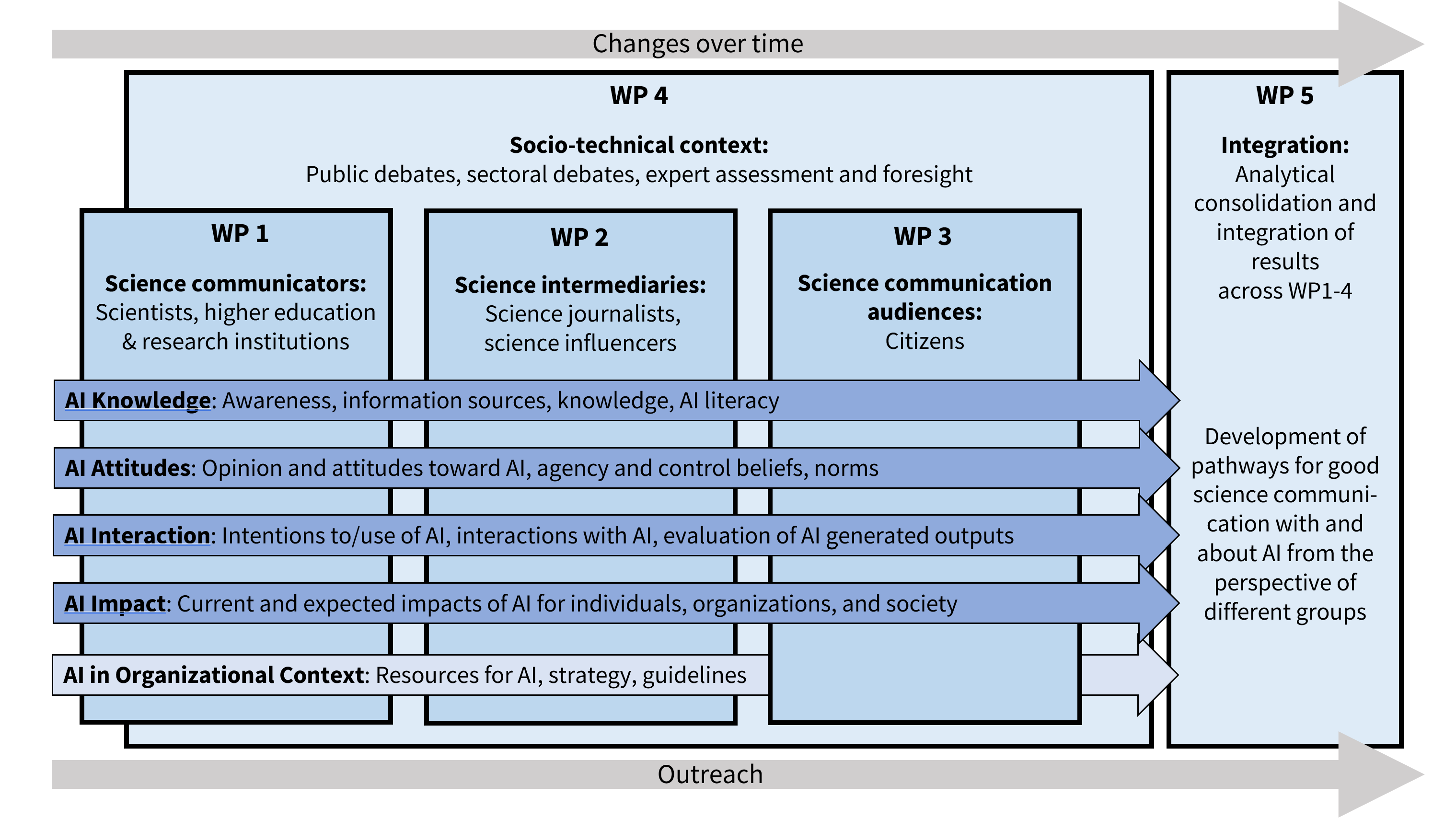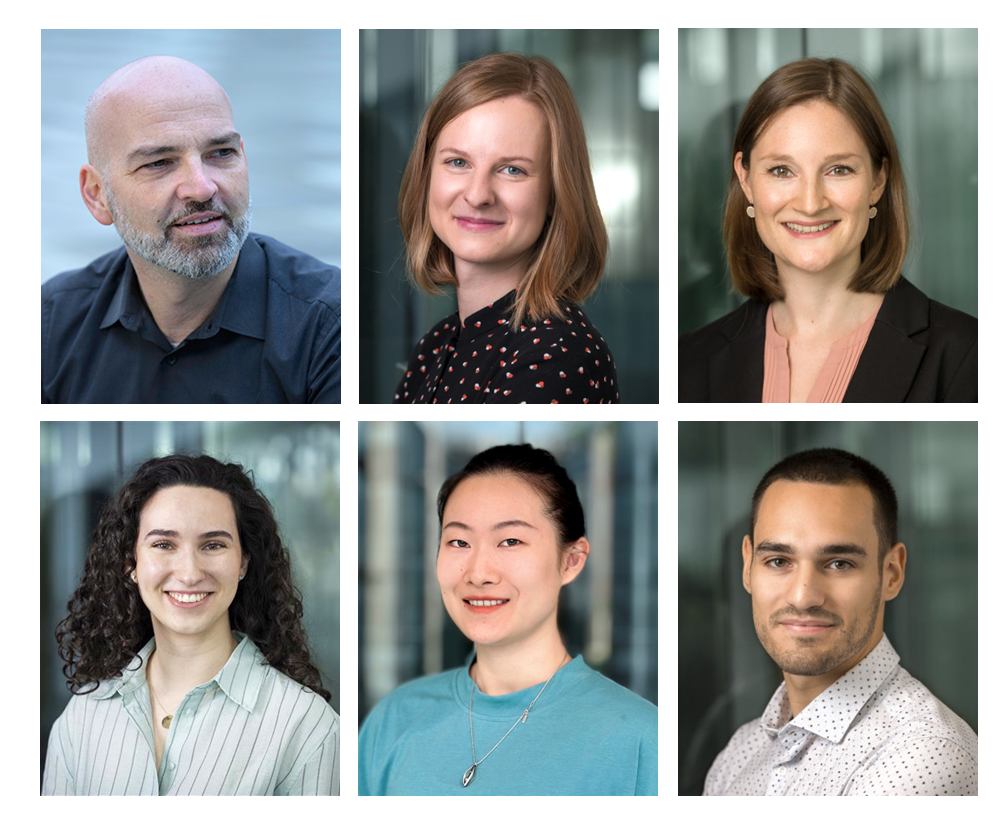Science Communication in the Age of Artificial Intelligence

Generative AI (GenAI), epitomized by the rise of large language models (LLMs) such as GPT, will fundamentally change societal communication in many realms. This includes public science communication—communication from and about science-related issues to non-expert audiences, including its production, content, use and effects—which has risen in importance. The project maps how GenAI impacts and changes the science communication landscape in Switzerland—both currently and in the next years.
The project aims to describe and explain how developments around GenAI are changing the landscape of public science communication. Three research questions structure the project and its work packages (WPs):
- How do science communicators, intermediaries, and audiences perceive and interact with GenAI, and how does it affect them?
- How is the socio-technical context of science communication changing in the age of AI?
- What trends, opportunities and challenges does AI bring to the science communication landscape?
Objectives and Aims
The project focuses on current and future changes and their assessment by relevant players and stakeholders of science communication. In five WPs, it analyses individual scientists as well as communicators from scientific organizations and institutions of higher education (WP1 | PI: Dr. Volk), intermediaries such as science journalists and influencers (WP2 | PI: Dr. Volk), and citizens as important audiences of public science communication (WP3 | PI: Prof. Dr. Schäfer). For these groups, the project assesses their knowledge of and attitudes towards science communication and GenAI, their use of and interactions with GenAI, and the impact GenAI has on them. In addition, the project assesses broader socio-technical contexts of science communication and GenAI, including relevant public and sectoral debates and expert assessment and foresight on ethical, legal, regulatory, societal, and technological aspects of AI and their development (WP4 | PI: Dr. Mahl). The concluding WP5 (PI: Dr. Mahl) integrates the results across WPs and enables feedback from and exchanges with the science communication community in Switzerland.

Methodological Triangulation
To understand the role of AI in public science communication comprehensively, the project combines qualitative, quantitative, and computational methods. To mitigate limitations of individual methods, it uses standardized surveys, semi-structured interviews with concurrent think-aloud and human-AI interaction approaches, serial focus groups, text-as-data approaches, content and document analyses, and social network analyses—thus combining self-reported, textual, and observational data, as well as data donations.
We are currently part of the Data Donation Days 2024. If you want to know more about our project "Can we rely on ChatGPT?", click here).
Project Members

Prof. Dr. Mike S. Schäfer (UZH), Dr. Daniela Mahl (UZH), Dr. Sophia C. Volk (UZH),Gerta Lokaj (UZH), Xiran Liu (UZH), Damiano Lombardi (UZH)
Runtime: 2025-2028
Funding: Swiss National Science Foundation (SNSF)
Total funds: 770,148 CHF
Publications and Talks
Publications
Mahl, D., Schäfer, M. S., Volk, S. C., & Kessler, S. H. (2024). Künstliche Intelligenz in der Wissenschaft: Chancen und Grenzen für Forschung, Lehre und Wissenstransfer. Ze-phir, 31(1), 24-26. Link
Schäfer, M. S. (2023). The Notorious GPT: Science communication in the age of artificial intelligence. JCOM - Journal of Science Communication 22(02), Y02. Link
Volk, S. C., Schäfer, M. S., Lombardi, D., Mahl, D., & Yan, X. (2024). How generative AI portrays science. Interviewing ChatGPT from the perspective of different audience segments. Public Understanding of Science.Link
Talks
Mahl, D., & Volk, S. C. (2024). Boon or bane? Mapping research on the impact of AI on science communication. Invited talk at ScienceComm’24 on September 10, 2024 in Bern, Switzerland.